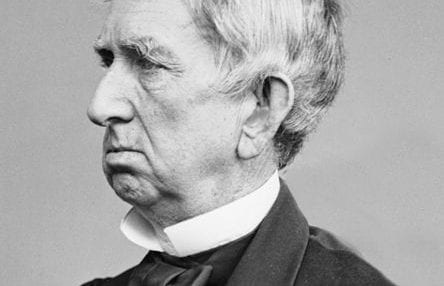This government is profoundly and agreeably impressed with the consideration which the Emperor has manifested towards the United States by inviting their concurrence in a proceeding having for its object the double interests of public order and humanity. Nor is it less favorably impressed with the sentiments and the prudential considerations which the Emperor has in so becoming a manner expressed to the court of St. Petersburg. They are such only as appeal to the just emotions and best sympathies of mankind. The enlightened and humane character of the Emperor of Russia, so recently illustrated by the enfranchisement of a large mass of the Russian people from inherited bondage, and the establishment of an impartial and effective administration of justice through-out his dominions, warrant a belief that the appeal will be received and responded to by him with all the favor that is consistent with the general welfare of the great state over which he presides with such eminent wisdom and moderation.
Notwithstanding, however, the favor with which we thus regard the suggestion of the Emperor of the French, this government finds an insurmountable difficulty in the way of any active cooperation with the governments of France, Austria, and Great Britain, to which it is thus invited.
Founding our institutions upon the basis of the rights of man, the builders of our Republic came all at once to be regarded as political reformers, and it soon became manifest that revolutionists in every country hailed them in that character, and looked to the United States for effective sympathy, if not for active support and patronage. Our invaluable Constitution had hardly been established when it became necessary for the government of the United States to consider to what extent we could, with propriety, safety, and beneficence, intervene, either by alliance or concerted action with friendly powers or otherwise, in the political affairs of foreign states. An urgent appeal for such aid and sympathy was made in behalf of France, and the appeal was sanctioned and en-forced by the treaty then existing of mutual alliance and defence, a treaty without which it may even now be confessed, to the honor of France, our own sovereignty and independence could not have been so early secured. So deeply did this appeal touch the heart of the American people, that only the deference they cherished to the counsels of the Father of our Country, who then was at the fulness of his unapproachable moral greatness, reconciled them to the stern decision that, in view of the location of this republic, the characters, habits, and sentiments of its constituent parts, and especially its complex yet unique and very popular Constitution, the American people must be content to recommend the cause of human progress by the wisdom with which they should exercise the powers of self-government, forbearing at all times, and in every way, from foreign alliances, intervention, and interference.
It is true that Washington thought a time might come when, our institutions being firmly consolidated and working with complete success, we might safely and perhaps beneficially take part in the consultations held by foreign states for the common advantage of the nations. Since that period occasions have frequently happened which presented seductions to a departure from what, superficially viewed, seemed a course of isolation and indifference. It is scarcely necessary to recur to them. One was an invitation to a congress of newly emancipated Spanish-American states; another an urgent appeal to aid Hungary in a revolution aiming at the restoration of her ancient and illustrious independence; another, the project of a joint guarantee of Cuba to Spain in concurrence with France and Great Britain; and more recently, an invitation to a cooperative demonstration with Spain, France, and Great Britain in Mexico; and, later still, suggestions by some of the Spanish-American states for a common council of the republican states situated upon the American continent. These suggestions were successively disallowed by the government, and its decision was approved in each case by the deliberate judgment of the American people. Our policy of non-intervention, straight, absolute, and peculiar as it may seem to other nations, has thus become a traditional one, which could not be abandoned without the most urgent occasion, amounting to a manifest necessity. Certainly it could not be wisely departed from at this moment, when the existence of a local, although as we trust only a transient disturbance, deprives the government of the counsel of a portion of the American people, to whom so wide a departure from the settled policy of the country must in any case be deeply interesting.
The President will not allow himself to think for a single moment that the Emperor of the French will see anything but respect and friendship for himself and the people of France, with good wishes for the preservation of peace and order, and the progress of humanity in Europe, in the adherence of the United States on this occasion to the policy which they have thus far pursued with safety, and not without advantage, as they think, to the interests of mankind.



